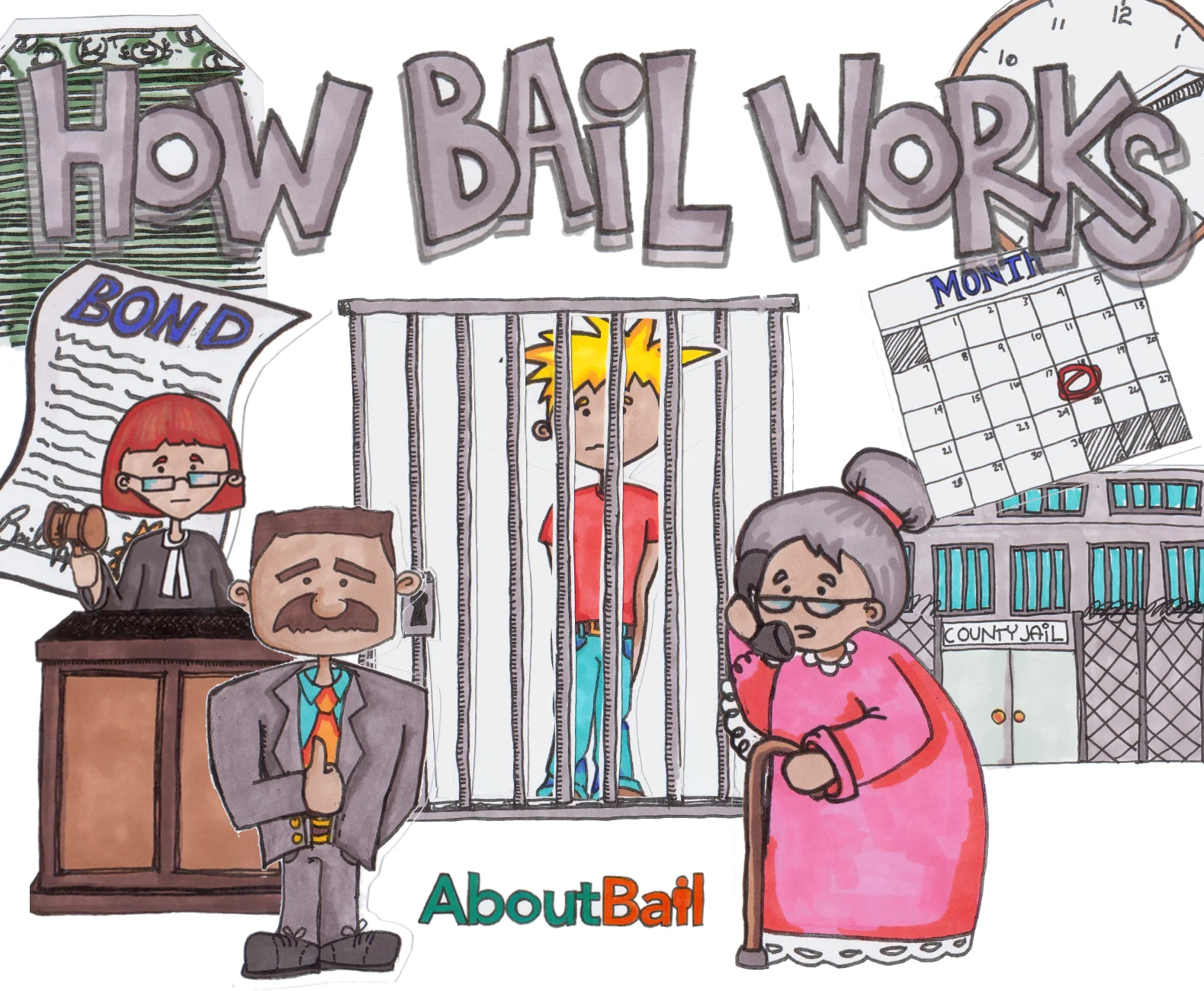Montgomery County Bail Bonds - Quick and Affordable Services
Montgomery County Bail Bonds - Quick and Affordable Services
Blog Article
Unlocking the Tricks of Bail Bonds: An Extensive Introduction
Browsing the detailed world of Bail bonds can commonly seem like understanding a puzzling code, with layers of complexity that stay hidden to many. From the different kinds of Bail bonds available to the critical duty of a co-signer, each element plays an essential component in this lawful procedure. As we unravel the web of ins and outs bordering Bail bonds, a more clear understanding arises, clarifying the systems that underpin this system. Join us as we dig much deeper right into the nuanced facets of Bail bonds, discovering the keys that lie within and demystifying this usually nontransparent realm.
Understanding Bail Bonds Refine
When facing a lawful scenario that calls for uploading Bail, understanding the Bail bonds procedure is essential to navigate the complexities of the judicial system effectively. Bail bonds function as a financial guarantee to the court that the accused will certainly show up for all required court looks. This procedure entails a bail bondsman, who normally charges a non-refundable charge, normally around 10% of the overall Bail amount, to post the Bail on behalf of the defendant.

Additionally, collateral, such as home or assets, may be called for to safeguard the bail bond. Recognizing the conditions of the bail bond arrangement is important to ensure compliance and avoid any type of added legal repercussions. By understanding the Bail bonds process, individuals can make educated choices when navigating the legal system.
Kinds Of Bail Bonds Available
The most usual type is a guaranty bond, where a bail bondsman pays the full Bail amount on behalf of the defendant in exchange for a non-refundable charge, generally around 10% of the overall Bail. Cash money bonds require the complete Bail amount to be paid in money prior to the accused can be launched.
Furthermore, there are government Bail bonds for cases entailing federal costs and migration bonds for individuals apprehended by Migration and Customs Enforcement (ICE) Recognizance, or trademark bonds, are approved based upon the offender's guarantee to show up in court without needing any payment. Lastly, transfer bonds are utilized when an offender is arrested in a various state and requires to upload Bail to be released. Comprehending the numerous kinds of Bail bonds offered can aid offenders browse the lawful process better.
Obligations of the Co-Signer

Furthermore, as a co-signer, you are accountable for ensuring that the offender complies with any problems set by the court, such as going to counseling or avoiding from certain tasks. It is necessary to keep open communication with the defendant to check their compliance and attend to any problems promptly. Eventually, being a co-signer entails a considerable degree of trust and obligation, as you are monetarily and legally linked to the defendant's Bail commitments.
Consequences of Avoiding Bail

Missing Bail can have major lawful repercussions for both the co-signer and the offender included in the bail bond arrangement. When a defendant stops working to show up in court as required after publishing Bail, the court generally releases a warrant for their arrest. This not only aggravates the defendant's lawful concerns but likewise places the co-signer in jeopardy.
For the accused, missing Bail can cause additional criminal fees, such as ridicule of court or Bail leaping, which can result in penalties, a cancellation of Bail privileges, and even jail time. Additionally, the offender may shed the Bail amount paid and any kind of security supplied.
If the defendant avoids Bail,Co-signers likewise encounter substantial consequences. As the co-signer guarantees the defendant's appearance in court and is economically accountable for the complete Bail quantity, they might be called for to pay the whole Bail if the offender absconds. This can lead to financial strain, damaged credit scores, and prospective lawsuit against the co-signer.
Secret Elements in Bail Bond Authorization
When looking for approval for a bail bond, numerous vital elements come into play that significantly influence the decision-making process. The initial crucial element is the severity of the claimed criminal offense. Much more significant offenses might lead to greater Bail amounts and even a denial of Bail altogether. The accused's criminal history is an additional vital consideration. A background of previous sentences or a pattern of avoiding court days can increase warnings and make it more challenging to secure a bail bond. bail bonds dayton ohio.
Furthermore, the connections the offender has to the area can impact the approval of a bail bond. The capability to pay the Bail quantity or give collateral can boost the chances of bail bond authorization. Ultimately, a combination of these aspects is weighed by the court when identifying whether to accept a bail bond.
Conclusion
Finally, understanding the Bail bonds procedure, the types available, the responsibilities of the co-signer, the repercussions of avoiding Bail, and the essential aspects in bail bond approval are important for navigating the legal system. By acquainting oneself with these facets, people can make educated decisions and ensure a smoother procedure when handling Bail bonds. It is essential to follow the standards and needs stated to stay clear of any type of potential complications.
The most usual type article is a surety bond, where a bond bondsman pays the full Bail quantity on part of the defendant in exchange for a non-refundable cost, generally around 10% of the overall Bail. By signing the bail bond agreement, you are taking on the resource responsibility of guaranteeing the complete Bail amount if the offender stops working to appear in court - bail dayton ohio.Avoiding Bail can have serious lawful repercussions for both the offender and the co-signer entailed in the bail bond contract. The capacity to pay the Bail amount or give collateral can raise the possibilities of bail bond authorization.In conclusion, recognizing the Bail bonds process, the kinds available, the obligations of the co-signer, the consequences of avoiding Bail, and the vital elements in bail bond authorization are important for navigating the legal system
Report this page